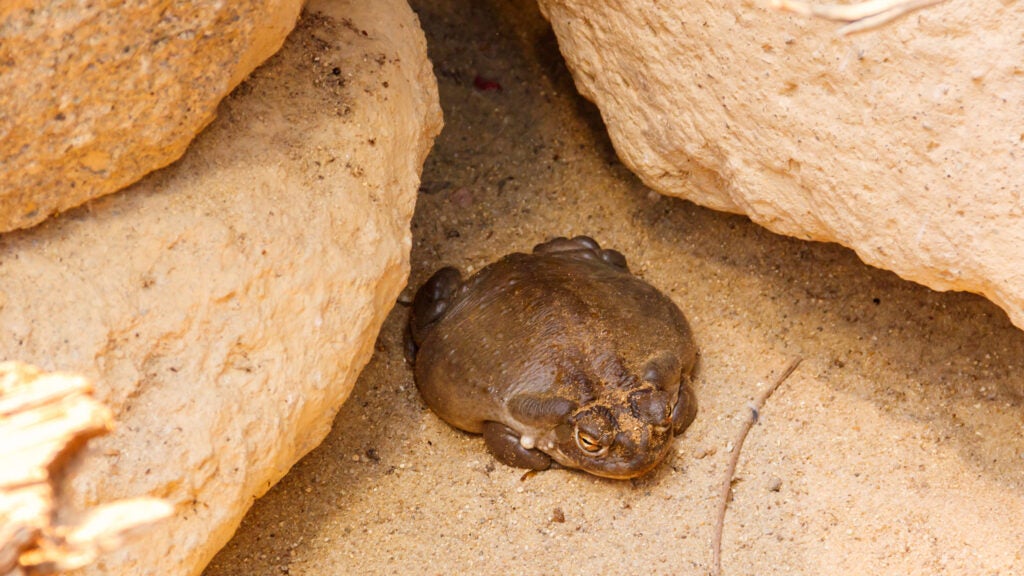Products You May Like
Get full access to Outside Learn, our online education hub featuring in-depth fitness, nutrition, and adventure courses and more than 2,000 instructional videos when you sign up for Outside+
Sign up for Outside+ today.
Visitors who touch, harass, or just get too close to animals are a bane of the National Park Service’s existence. Whether they’re imitating animal calls to attract them, climbing into streams full of brown bears, or getting gored by bison, it seems like park rangers have to warn off, cite, or save people who are yearning for an illegally close wildlife encounter on a weekly basis. But when it comes to the Sonoran desert toad, the NPS said in a post on Facebook last week, the agency just wants hikers to keep their tongues to themselves.
At up to 7 inches long, Sonoran desert toads are the second-largest toad in North America, beaten only by the introduced cane toad, and they inhabit a swath of southern Arizona, western New Mexico, and northern Mexico. To defend against predators, they use a set of skin glands on their back to produce a powerful toxin capable of killing predators that make the mistake of chomping down on one. People who handle the toads can also end up sick with vomiting and cardiac symptoms.
Unfortunately for the toads, those glands also produce 5-MeO-DMT, a powerful hallucinogen which users have said causes a feeling of intense euphoria, out of body experiences, and vivid hallucinations. That chemical has motivated would-be psychonauts, who have credited the toad’s toxins with helping everything from anxiety to post-traumatic stress disorder. As the New York Times reported in March, participants at retreats sometimes pay up to $8,500 for a chance to smoke the toad’s skin goo; among the celebrities who have spoken about trying 5-MeO-DMT are Mike Tyson and podcaster Joe Rogan (notorious for his own patchy relationship with evidence-based medicine).
That demand has had major repercussions on the species’s viability: The New Mexico Department of Game and Fish says that Sonoran desert toads are under threat due to people who collect the animals to process and smoke their secretions. Even outside of protected federal lands, no state where the toads currently exist allows their removal from the wild. (Of note: While licking the toad is popular, it’s as likely to land you in the hospital as it is to send you on a trip.)
“As we say with most things you come across in a national park, whether it be a banana slug, unfamiliar mushroom, or a large toad with glowing eyes in the dead of night, please refrain from licking,” the NPS wrote on the Facebook post. Sounds like good advice to us.
